Concawe Reports
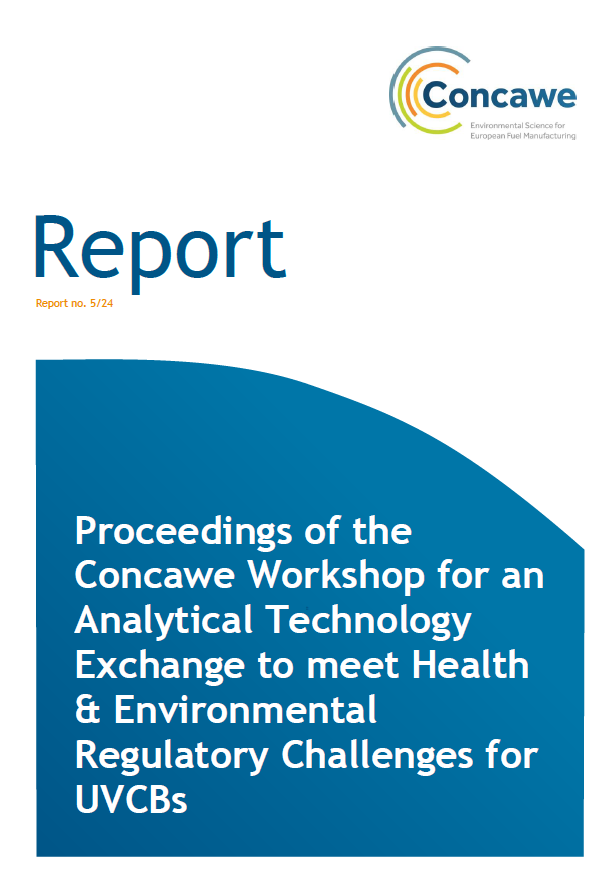
Reports
Proceedings of the Concawe Workshop for an Analytical Technology Exchange to meet Health & Environmental Regulatory Challenges for UVCBs
Report Nº 5/24: These proceedings are a record of the Concawe workshop held in Helsinki, Finland at the European Chemicals Agency (ECHA) on the 8th November 2023.
The workshop aimed to increase th...
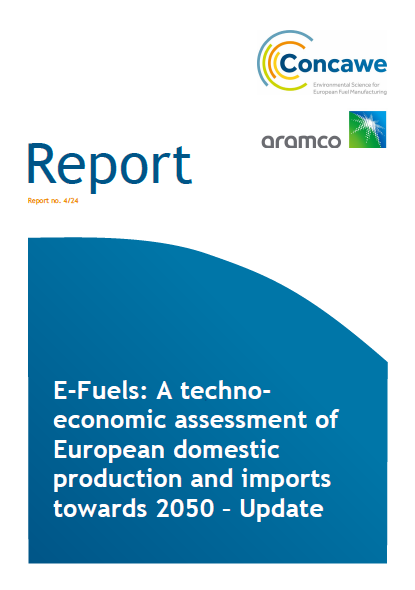
Reports
E-Fuels: A techno-economic assessment of European domestic production and imports towards 2050 – Update
Report Nº 4/24: Concawe and Aramco have jointly commissioned this study, aiming to conduct a techno-environmental (Part 1) and economic (Part 2) analysis of different e-fuels pathways produced in dif...
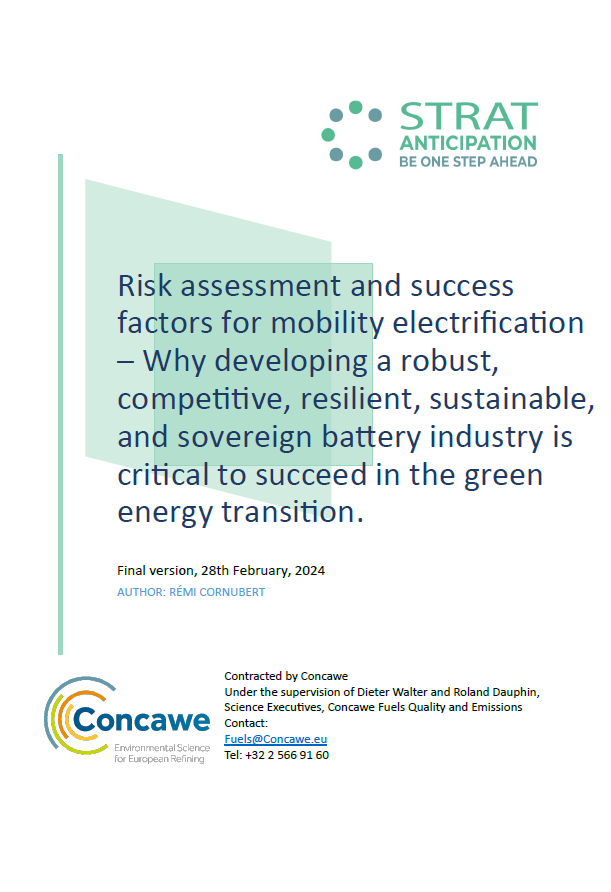
Reports
Risk assessment and success factors for mobility electrification – Why developing a robust, competitive, resilient, sustainable, and sovereign battery industry is critical to succeed in the green energy transition
High-performance batteries play a crucial role in the advancement of electric mobility. They are essential for unlocking the full potential of electrification in transportation, while also presenting...
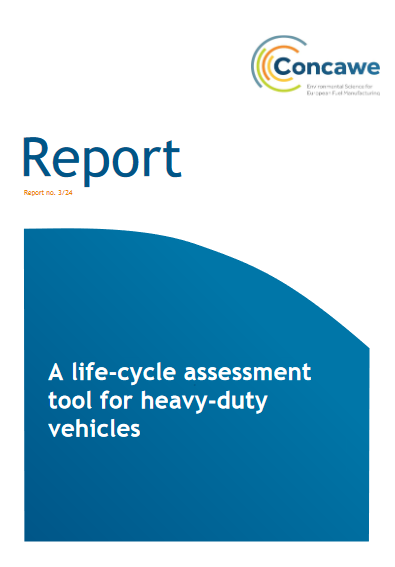
Reports
A life-cycle assessment tool for heavy-duty vehicles
Report Nº 3/24: This report is the supporting document to the life-cycle assessment tool for heavy- duty vehicles (HDVs) developed by IFP Energies nouvelles and commissioned by Concawe that was publi...
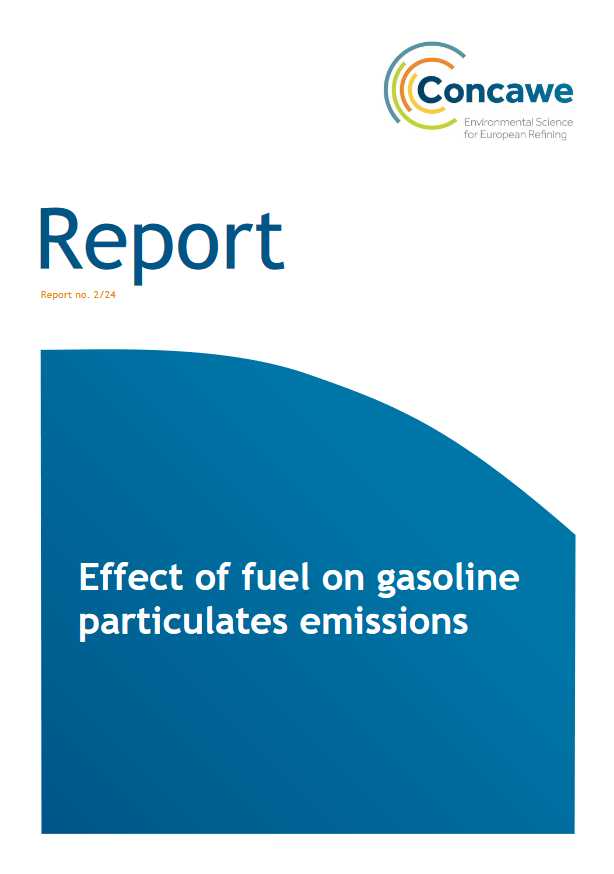
Reports
Effect of fuel on gasoline particulates emissions
Report Nº 2/24: Concawe conducted a research programme in cooperation with VTT examining the relationship between gasoline physical-chemical properties and particulate number (PN) emissions. The comp...
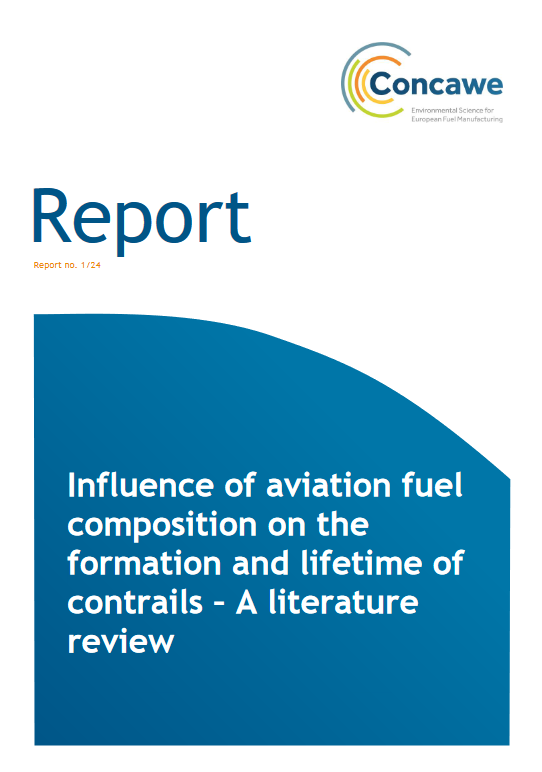
Reports
Influence of aviation fuel composition on the formation and lifetime of contrails – A literature review
Report No. 01/24: The question of how aviation fuel composition affects the formation and lifetime of contrails is a complex one. Although the theory regarding initial contrail formation is well-found...
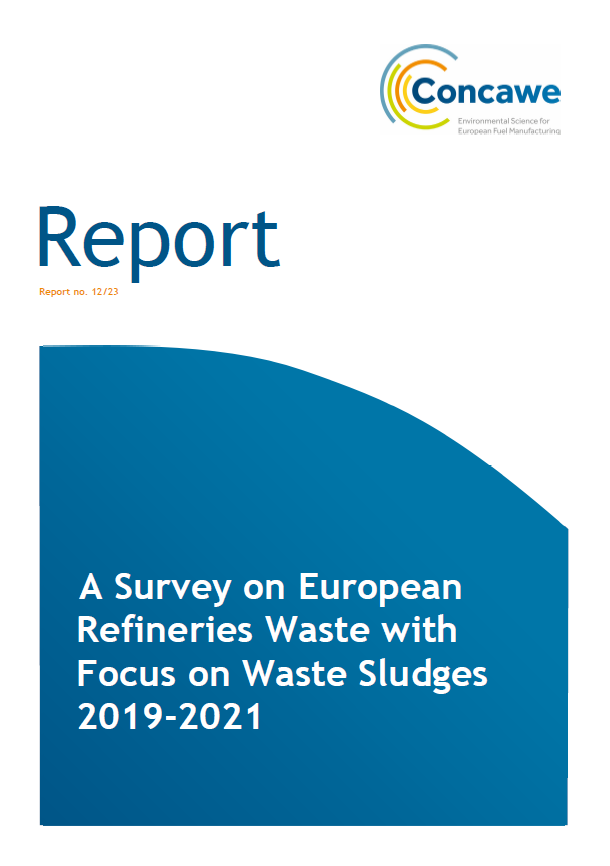
Reports
A Survey on European Refineries Waste with Focus on Waste Sludges 2019-2021
Report no. 12/23: This report provides a statistical analysis of waste production by Concawe member company refineries in the years 2019, 2020 and 2021, based on survey data returned from 68 member co...
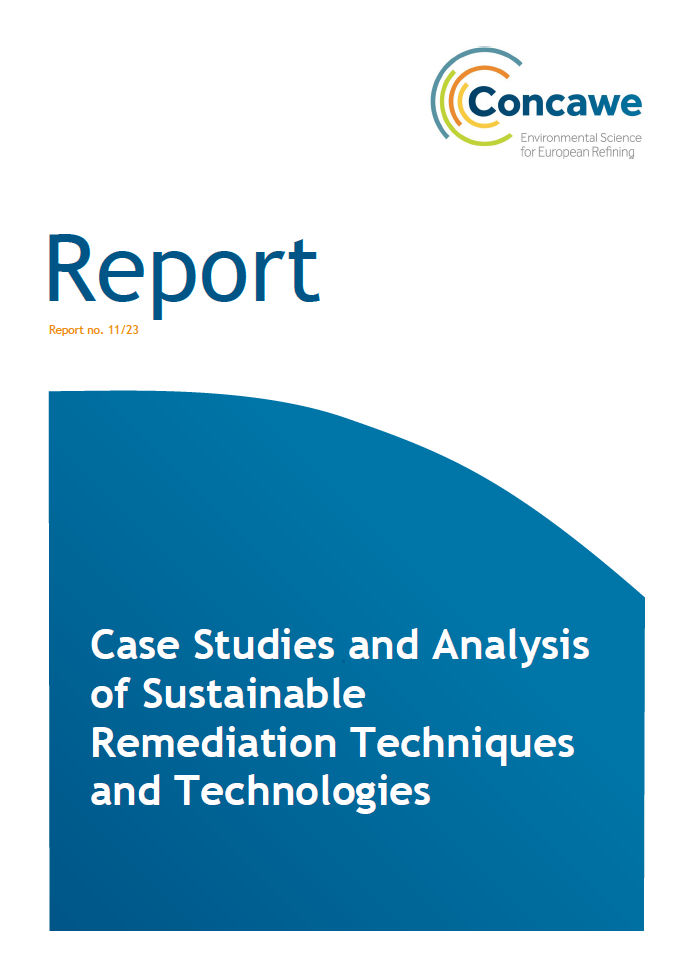
Reports
Case Studies and Analysis of Sustainable Remediation Techniques and Technologies
Report no. 11/23: The concept of sustainable remediation has become well established in the remediation industry and its application has spread around the world. However, there is a recognised gap in...
Reports
Hazard classification and labelling of petroleum substances in the European Economic Area – 2023
Report no. 9/23:
This report updates Concawe’s classification and labelling recommendations Report No. 1/22 to address latest updates to Concawe dossiers and changes to CLP regulation.
Further...
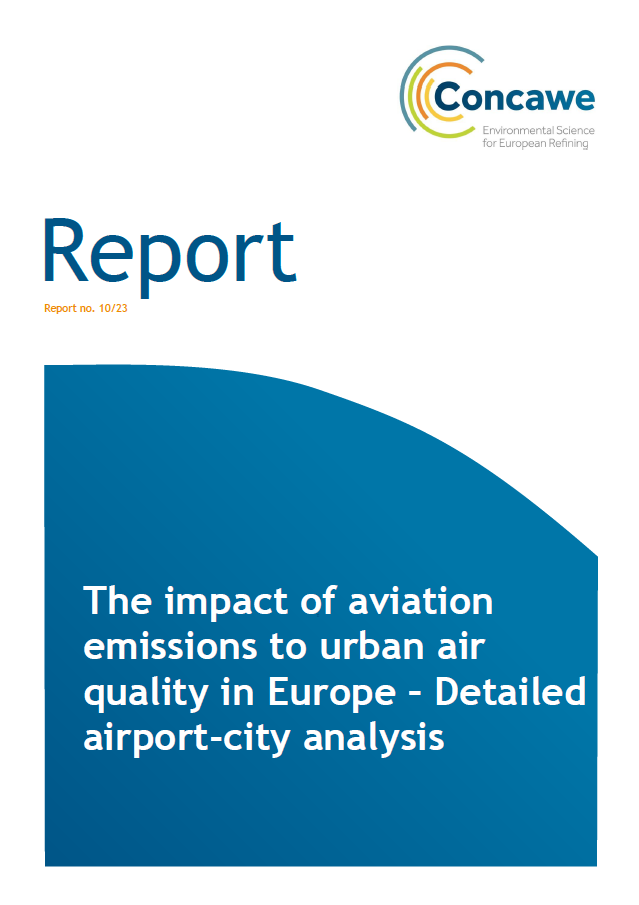
Reports
The impact of aviation emissions to urban air quality in Europe – Detailed airport-city analysis
Report no. 10/23:
Aviation causes emissions of NOx, SO2 and PM that have a negative impact on air quality. To investigate the extent of this impact, simulations with the chemical transport model (C...
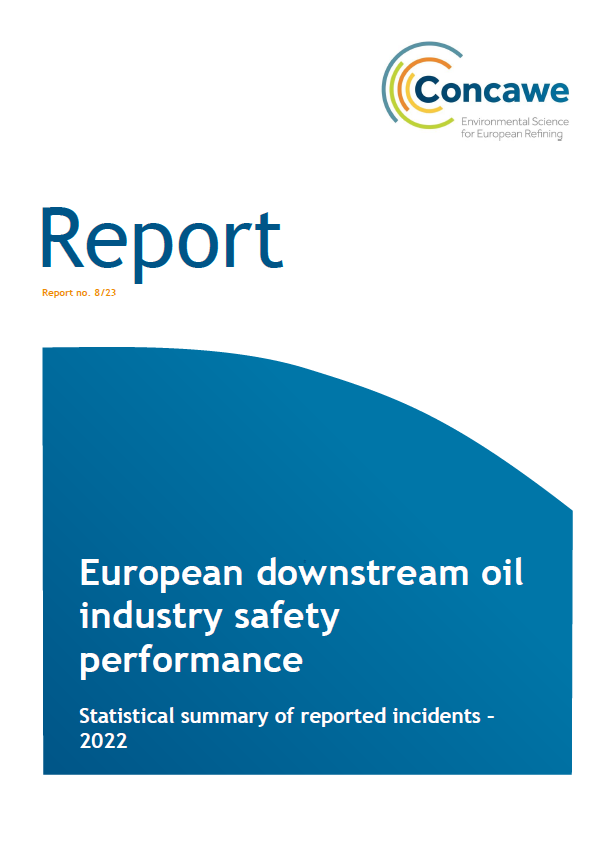
Reports
European downstream oil industry safety performance
Report no. 8/23: The 2022 annual report on European downstream oil industry safety performance presents work-related personal injuries for the industry’s own employees and contractors and proces...
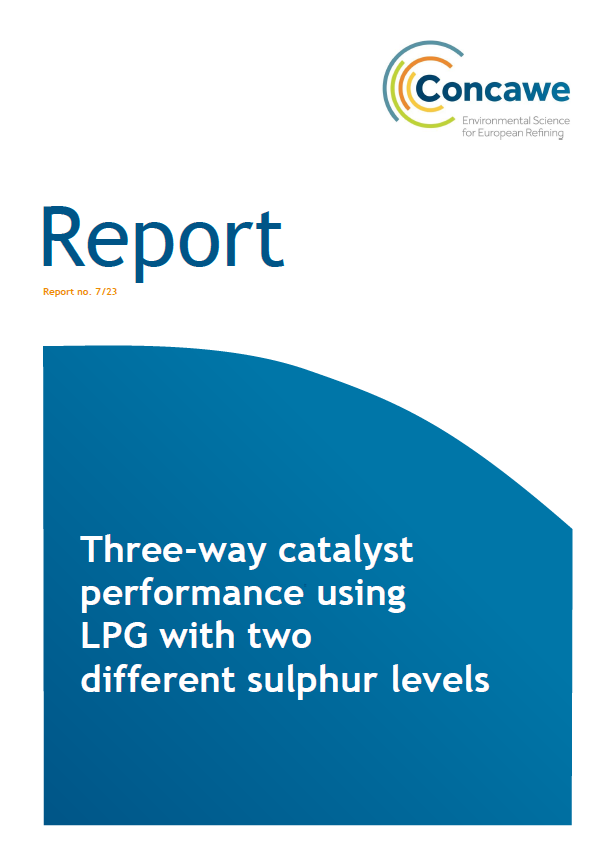
Reports
Three-way catalyst performance using LPG with two different sulphur levels
Report no. 7/23: An experimental programme was carried out to determine the long-term impact of the level of sulphur present in LPG on the performance of three-way catalytic converters (TWCs) in t...
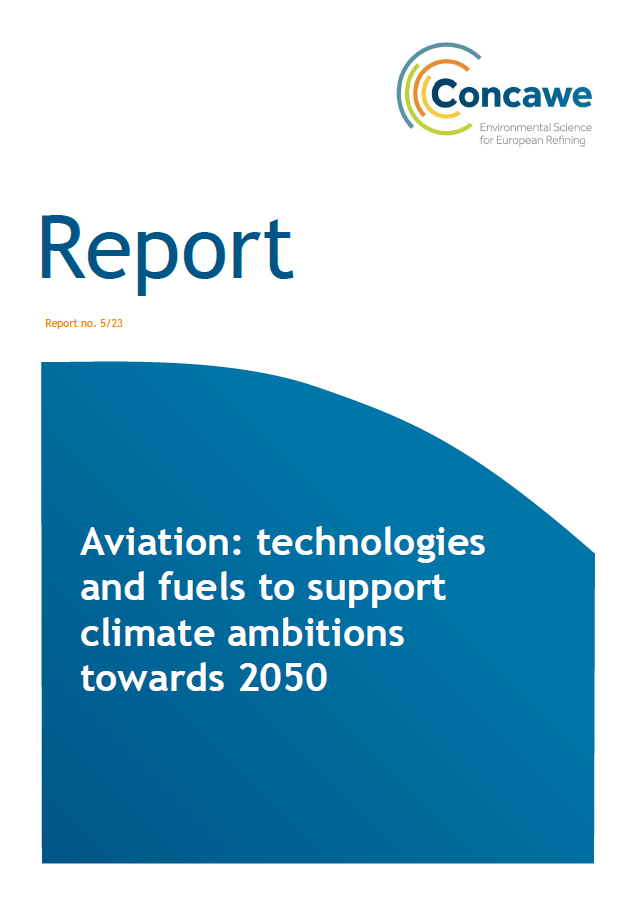
Reports
Aviation: technologies and fuels to support climate ambitions towards 2050
Report no. 5/23: In 2019, the aviation sector directly employed 11.3 million people worldwide. If also accounting for the associated indirect, induced, and catalytic jobs, aviation enabled a total o...
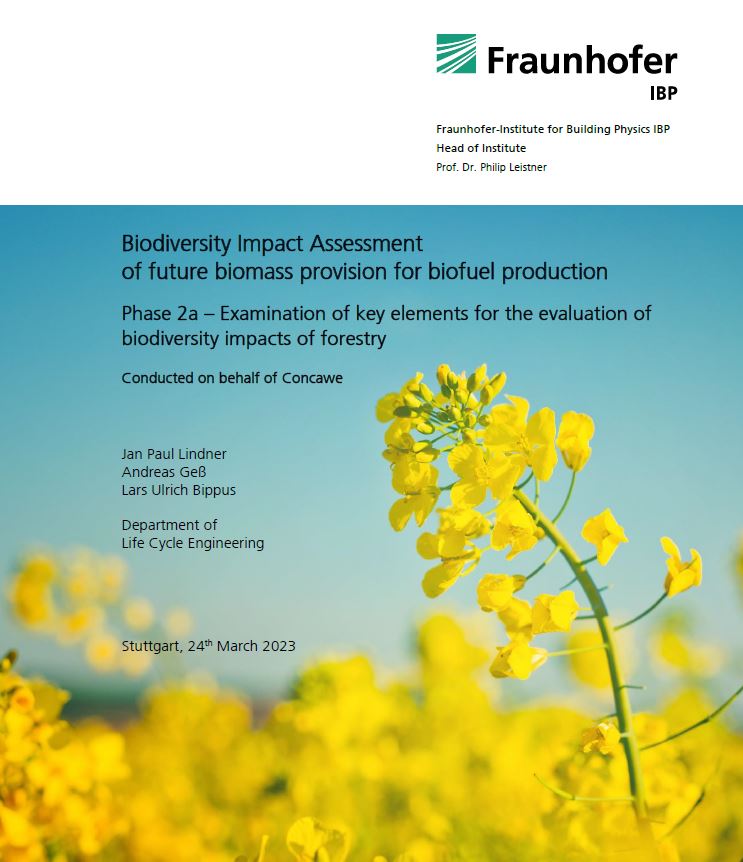
Reports
Biodiversity Impact Assessment of future biomass provision for biofuel production – Phase 2a
Biodiversity preservation has become a significant topic in Europe due to the increasing demand for more sustainable goods. Concawe, as part of its research activity in biomass availability and mo...
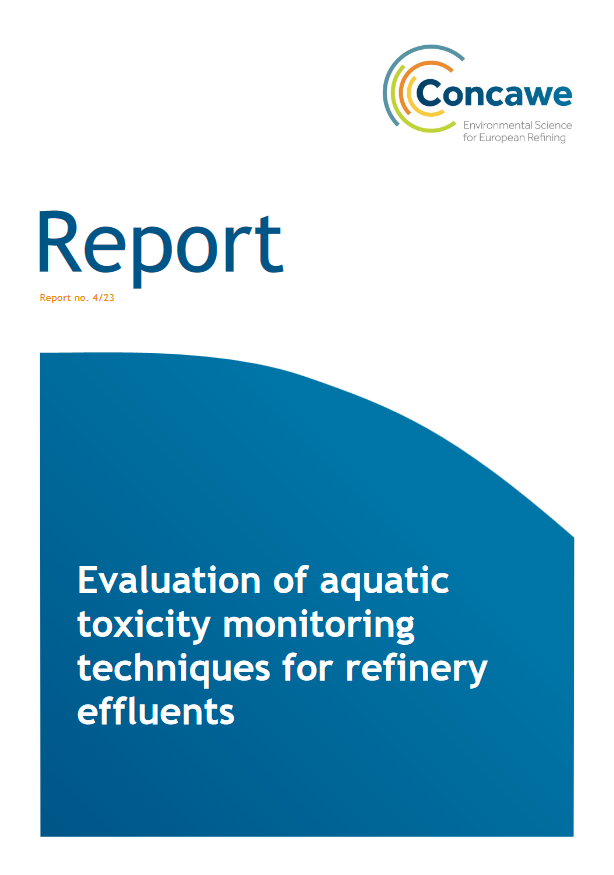
Reports
Evaluation of aquatic toxicity monitoring techniques for refinery effluents
Report No. 4/23. This report identifies and evaluates a selection of in vivo and in vitro aquatic toxicity testing methods, in order to assess which tests could present an interest if included in a te...
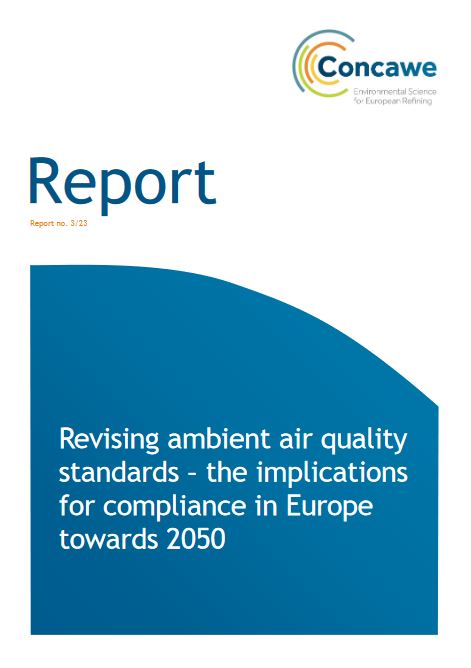
Reports
Revising ambient air quality standards – the implications for compliance in Europe towards 2050
Report no. 3/23: The European Commission (EC) is currently in the process of revising the EU Ambient Air Quality (AAQ) Directives with the aim to set more strict ambient air quality standards (AAQS) i...
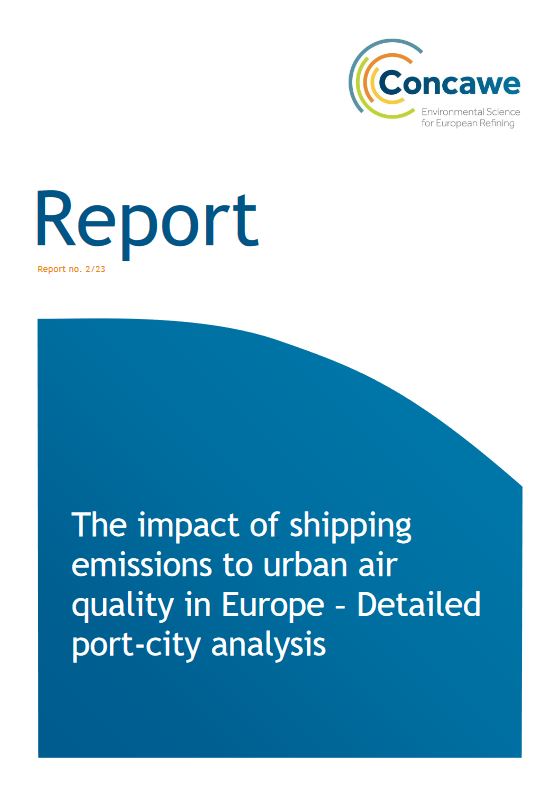
Reports
The impact of shipping emissions to urban air quality in Europe – Detailed port-city analysis
Report no. 2/23: The report presents the results from a recent project Concawe conducted with TNO that used modelling to assess the influence of shipping emissions on the air quality in 19 selected Eu...
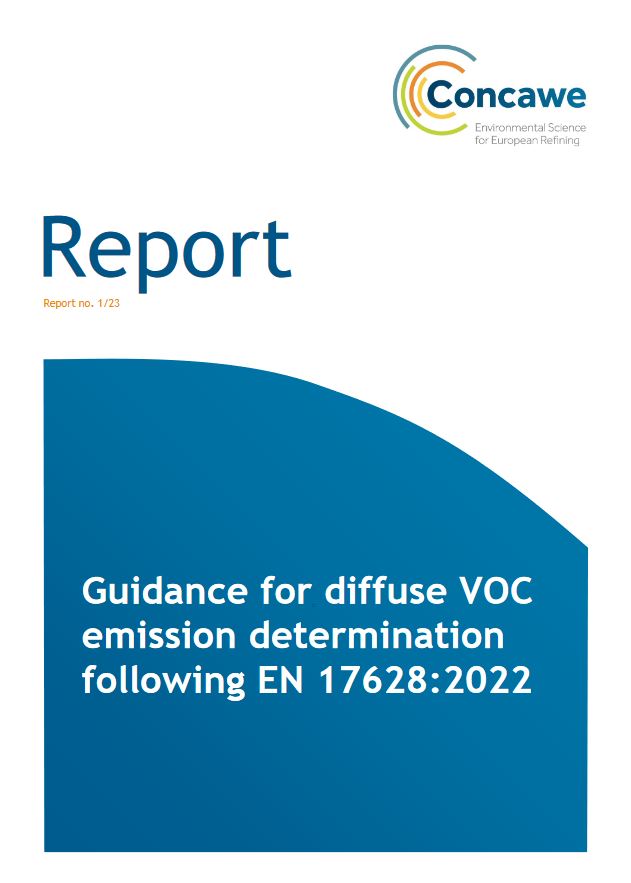
Reports
Guidance for diffuse VOC emission determination following EN 17628:2022
Report no. 1/23: This document addresses the periodic determination of diffuse emissions of non-methane volatile hydrocarbon compounds from refineries by means of remote sensing. A recent European sta...
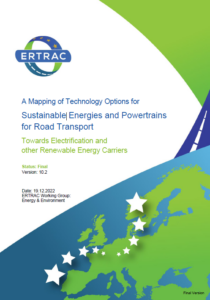
Reports
A Mapping of Technology Options for Sustainable Energies and Powertrains for Road Transport
In December 2022, the European Road Transport Research Advisory Council (ERTRAC) adopted during its plenary meeting a new document entitled “A Mapping of Technology Options for Sustainable Energies...
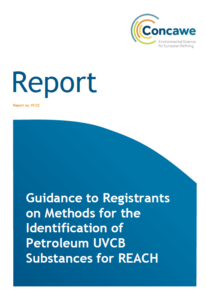
Reports
Guidance to Registrants on Methods for the Identification of Petroleum UVCB Substances for REACH
Report no. 19/22: Following recent revisions to Annex VI of EU REACH Regulation No. 1907/2006, this report describes the information which registrants should now provide in Sections 1.2 and 1.4 of the...
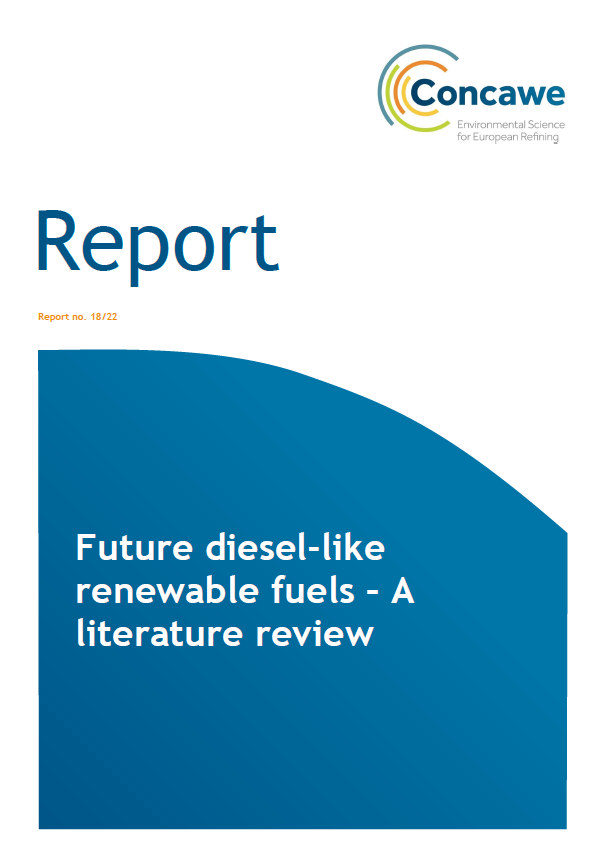
Reports
Future diesel-like renewable fuels – A literature review
Report no. 18/22: IFP Energies Nouvelles was commissioned by Concawe to identify novel sustainable liquid fuels pathways by 2030 for heavy duty trucks applications. The study consists of an extensive...
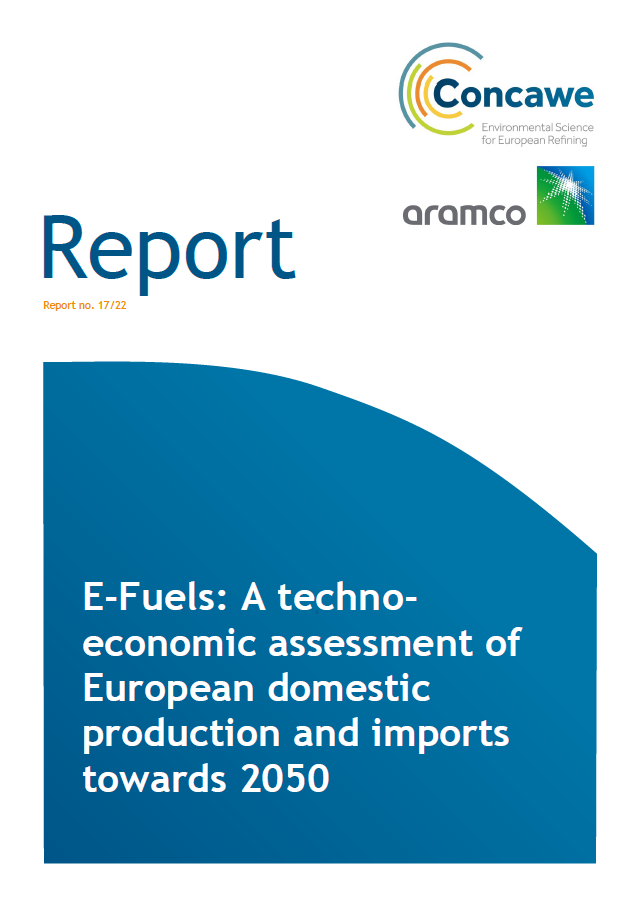
Reports
E-Fuels: A techno-economic assessment of European domestic production and imports towards 2050 (Concawe Report 17/22)
Report no. 17/22: Concawe and Aramco have jointly commissioned this study, aiming to conduct a techno-environmental (Part 1) and economic (Part 2) analysis of different e-fuels pathways produced in di...
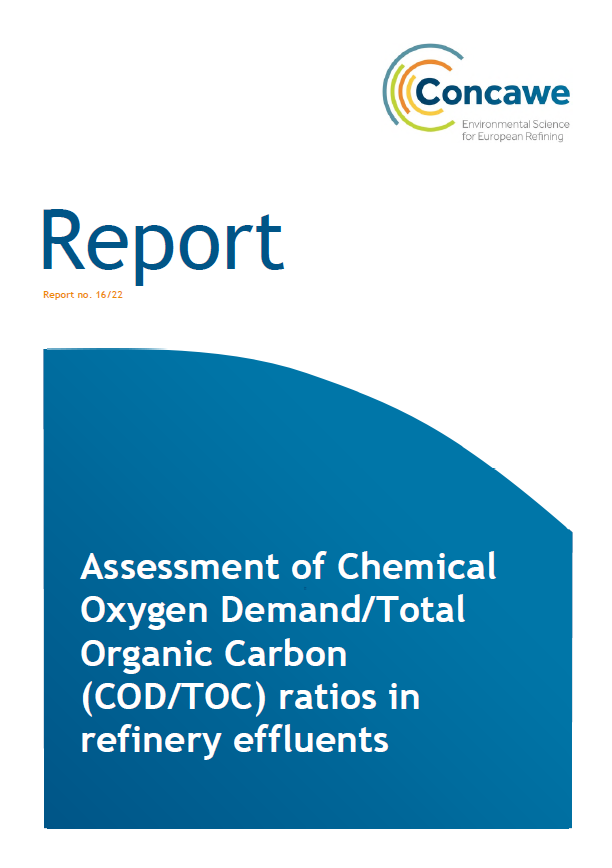
Reports
Assessment of Chemical Oxygen Demand/Total Organic Carbon (COD/TOC) ratios in refinery effluents
Report no. 16/22: Chemical Oxygen Demand (COD) analysis is one of the most commonly used analytical methods to indirectly measure organic pollutants in effluent waters. The standard COD methods use po...
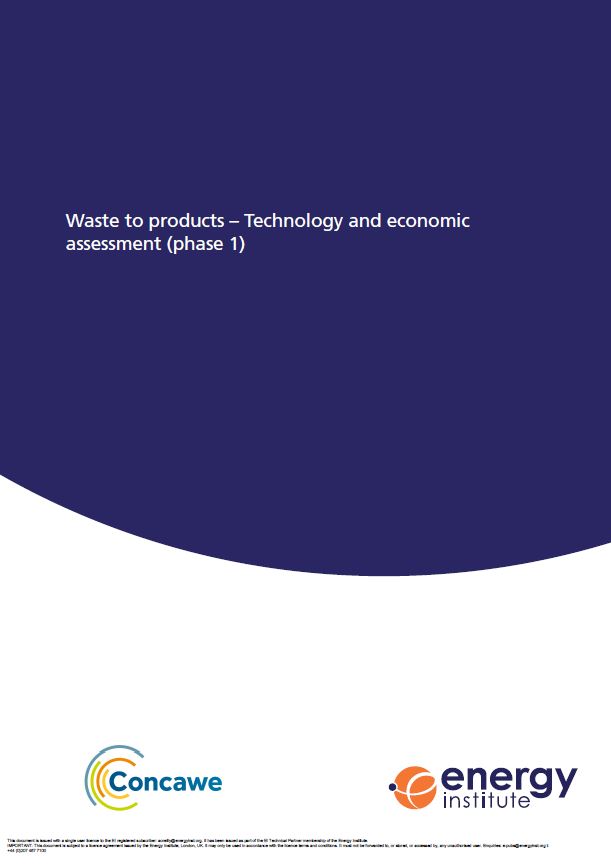
Reports
Waste to products – Technology and economic assessment (phase 1)
The EMG and Soil Wastes and Groundwater group (SWG) of the EI and Concawe have commissioned E4tech to conduct a technical analysis of waste-to-products (WTP) technologies that could be integrated with...